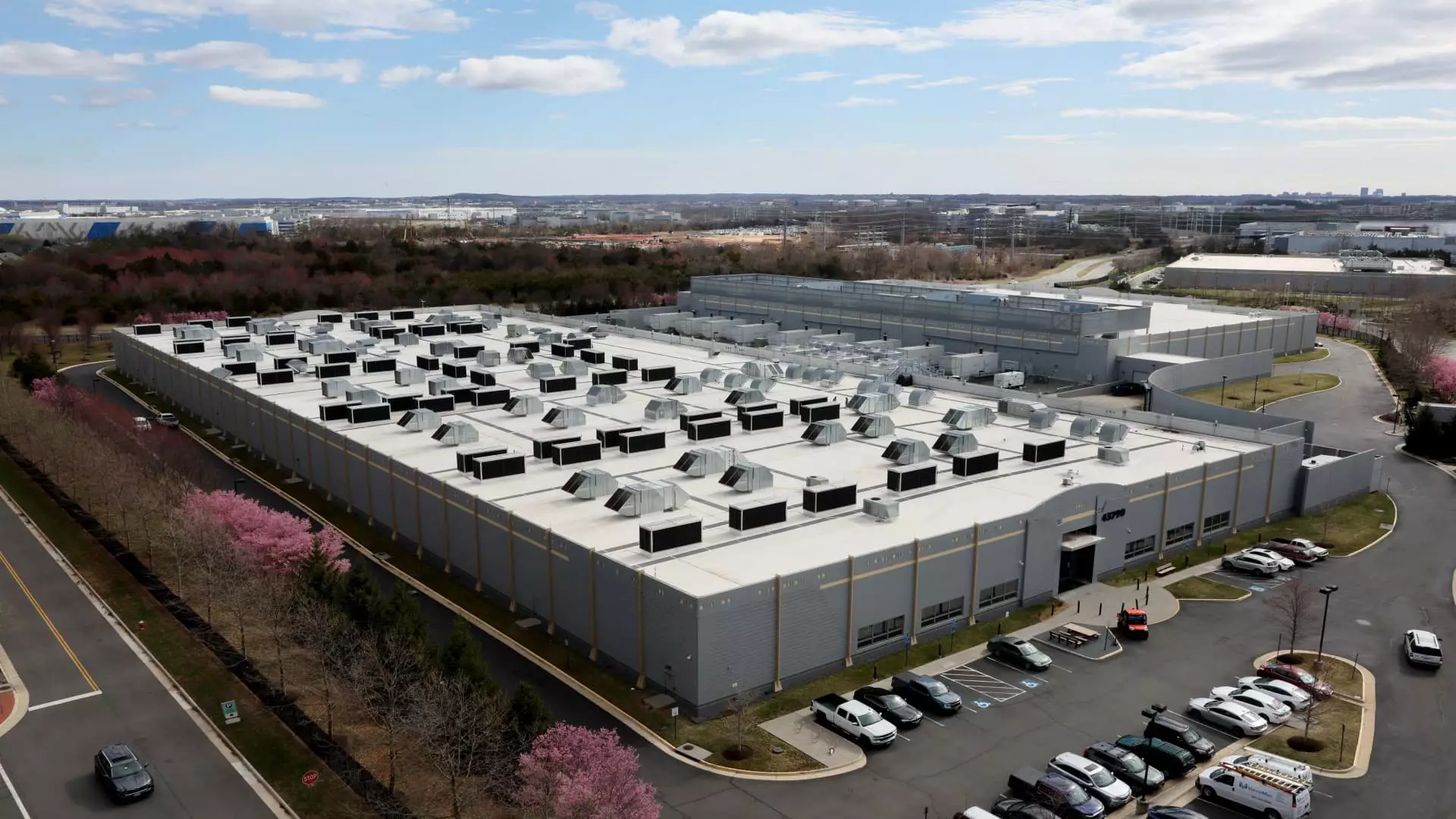In a move that has sent shockwaves through the energy investment landscape, the Abu Dhabi-based Sovereign Wealth Fund ADQ has partnered with American private equity firm Energy Capital Partners (ECP), creating a formidable $25 billion investment partnership. This collaboration is laser-focused on scaling up power generation capabilities, particularly to meet the burgeoning energy demands of data centers across the United States. This monumental investment reflects not just a strategic pivot towards power generation but also highlights the seriousness with which both entities are approaching the future demands of technology and energy consumption.
Investment partnerships of this magnitude don’t just happen overnight. They are indicative of a calculated response to evolving global trends. The U.S. power grid has experienced stagnation over the last fifteen years, but a perfect storm of factors—new data centers, the rise of electric vehicles, and climate change—means that the grid must now adapt or face crippling inadequacies. As we stand on the cusp of an energy evolution, the ADQ and ECP alliance is not merely opportunistic; it’s a tactical strike aimed at securing a foothold in a market poised for explosive growth.
The Imperative of Energy Security
It’s increasingly clear that in today’s digital economy, uninterrupted power is not a luxury; it’s a necessity. Tech titans such as Microsoft and Amazon are racing to advance artificial intelligence technologies, which demand staggering power supplies. The U.S. Department of Energy has noted that electricity consumption in data centers has tripled in just over a decade, and projections suggest this demand could double, if not triple, again by 2028. This places an urgent emphasis on the establishment of close-to-the-source power plants that can deliver energy on-demand and at scale.
When any partnership claims it aims to meet the “growing power needs” of such energy-intensive industries, one must scrutinize: Are they equipped to do so? Given ADQ’s and ECP’s track records—over $249 billion and $31 billion in asset management, respectively—their alliance offers promising capacities for massive investments over the long haul. What this underscores is a keen awareness of the shifting sands of power requirements in an era dominated by electric-driven technologies.
The Broader Economic Implications
Strategically, this investment partnership unfolds against a backdrop of the U.S. economy increasingly leaning on electronic and technology-driven sectors. As the demand for data centers spirals upwards, we must consider the cascading implications for job creation, infrastructure, and environmental sustainability. The need for significant investments in new power infrastructure suggests an impending surge in jobs—both in construction and operational capacities. In an age where economic growth is often questioned, this partnership could act as a catalyst for revitalizing American industry.
Moreover, the partnership symbolizes something deeper: a crossover of Gulf-state investment strategies into the fabric of the U.S. economy. The UAE has worked diligently to diversify its own economy away from oil dependency, putting significant resources into technology and infrastructure. By forging partnerships with American firms, they are not only sharing resources and knowledge but are also interweaving their economic fate with that of the U.S. Although some may see this as a form of economic imperialism, it’s crucial to recognize the mutual benefits such collaborations can yield.
The Noteworthy Political Undertone
The timing of this investment aligns interestingly with geopolitical dialogues between the United States and the UAE. Sheikh Tahnoon bin Zayed Al Nahyan’s visit to Washington reflects not just the necessity of partnerships for technological advancement but also a potential shift in international relations where economic ties supersede traditional notions of diplomacy. The meeting with influential political and business leaders, including the likes of former President Trump and Elon Musk, signifies more than just a financial transaction; it sets the stage for an energy revolution underscored by an alignment of interests.
The $25 billion investment partnership between ADQ and ECP is not just about increasing power generation capacity; it is emblematic of a critical intersection between technology, economy, and geopolitics. As American capitalism grapples with the demands of the digital age, one must pay keen attention to how this strategic alliance could redefine not just energy consumption but also the broader socio-economic landscape in the years to come. A future looms that neither party can afford to overlook, making this partnership a potentially game-changing force in energy and technology alike.

